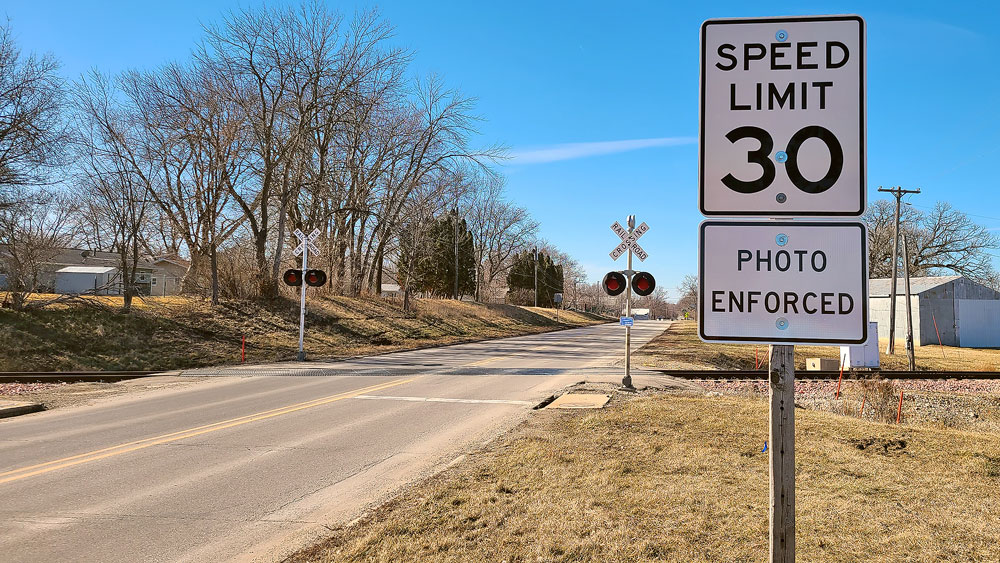The Weekly Word: The parable of the dishonest steward
By Fr. Tom Heathershaw, Immaculate Conception Parish
The Parable of the Dishonest Steward is regarded as one of the most confusing and difficult parables of Jesus. Some even say it defies any satisfactory explanation.
The primary question most people have is what does Jesus mean when he says, “Make friends for yourselves by means of unrighteous mammon, or unrighteous money, so that when it fails they may receive you into eternal dwellings.” Why does the master commend the steward for his unjust activity?

The first clue is that when we listen to parables of Jesus, if you just think of it as a nice illustration from daily life that helps give you an insight to the kingdom that is real simple or straightforward, then this parable does not make any sense. But many of Jesus’ parables have a twist – some unexpected elements. The twist is usually the key in unlocking the meaning.
We can apply this to the parable. We hear the steward is wasting the master’s money. He pays off their debt by stealing from the master. He is also making friends in the process of theft. Master = Lord. When the Master calls the steward in, he does not punish him for his dishonesty and theft, but the master commended the steward for his shrewdness. Why did the master commend the dishonest steward and say he acted prudently?
When Luke calls the steward dishonest that gives you the clue here to the fact that what he just did by changing the bills of the debtors was theft. Some people may think he is just being nice by forgiving the people’s debts, but he does not have the authority to do that, since it is the master’s money.
Jesus gives us the answer: for the sons of this world are more shrewd in dealing with their own generation than the sons of light.
What does that mean? In order to understand this explanation you have to know something about 1st century Judaism. In Judaism there is this idea of two worlds or two creations; the old creation and the new creation. The old creation is called this world, and the new creation is called the world to come.
The idea was that the old world had fallen full of sin, the world we live in; but one day it would be replaced by a new world which would be full of light, peace, and justice, and everlasting life.
Jesus is talking about two different groups of people: the sons of this world are ones belonging to this fallen world; the sons of light are those destined to dwell in the new creation, in the world to come. Jesus is making a point by saying that this steward who is a song of this world is thinking ahead, is more prudent than the son of light because he is taking from his master in order to secure his own future.
He is making sure that once he loses his status as steward, he is going to have friends that will take him into their homes so that he is not poor nor destitute.
Then Jesus tells us, “I tell you, make friends for yourselves with dishonest wealth, so that when it fails, you will be welcomed into eternal dwellings.” Here Jesus is not talking about earthly wealth. The whole parable is pointing to the final judgment.
Jesus is trying to counsel his disciples to pay off other people’s debts with the Lord’s money, so that when their money runs out, those people will receive you into eternal tabernacles, dwellings; some kind of heavenly dwelling place. What is Jesus talking about?
We’ve encountered this idea before in Jesus’ teaching about spiritual wealth, or about putting down-payments down now for your eternal reward. He is talking about almsgiving. What he was saying is, if you sell your possessions now and give to the poor, what you’re going to do is build up treasure in heaven.
The logic behind that is everything we actually possess in this world doesn’t really belong to us. We’re basically all stewards of the one true Master, God, who is the Lord of heaven and earth. So everything we have, in a sense, doesn’t belong to us.What Jesus is saying here is, use that unrighteous mammon, that money that doesn’t really belong to you, and give it away! Waste it on other people and give it to them and use it to pay down their debts, and they will reward you in the age to come.
We’ve seen this before where Jesus says in parables invite the poor, the maimed, the lame, the blind – people who can’t pay you back – and you will be rewarded at the resurrection of the just.
So in this case, the “Master” represents God, the unrighteous mammon is basically an image for earthly wealth that doesn’t actually belong to us, that we’ve just been made stewards of, and using it to pay down other’s debts is a symbol for almsgiving – giving to the poor, giving to those who are in need, and not just giving it away, but being wasteful with it. In other words, wasting it on the poor and the needy.
When you do that, they’re going to receive you into eternal dwellings; they’ll welcome you into “the world to come.”








Social Share